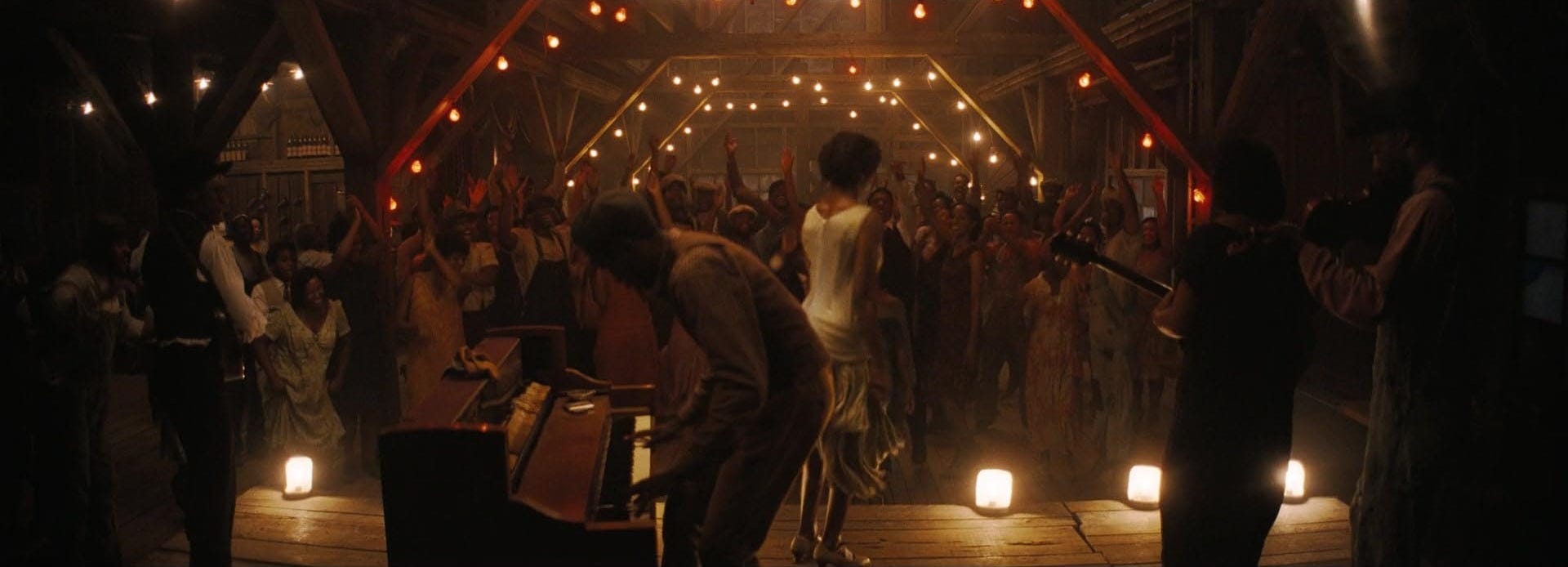‘Sinners,’ Juke Joints, and the Fragility of the Black Third Space
“Just for a few hours, we was free.”
There’s plenty to say about “Sinners” dropping on HBO Max on America’s Independence Day, but I want to talk about Black third spaces. Despite having wide crossover appeal, the movie itself serves as a Black space. Watching the 70mm version in Los Feliz, Los Angeles, I giggled with other Black audience members at jokes only we could understand while building a slight envy for what the experience must be like for Black Southerners.
A third space is an informal gathering spot outside of work or home.
Despite being gone for years, the Smokestack twins created a jook or juke joint in a matter of hours. It would be easy to chalk up compliance to fear and manipulation, but the juke’s (albeit brief) success reflects their standing in the community.
Because the movie juxtaposes the Black Church against the juke joint, I’ve seen unfounded claims that the two were always at odds throughout history. In reality, there were parts of the American South where jooks were held in churches. They may not have been as lascivious as their more hidden counterparts, but they still served as a place for the community to come together and unwind.
Many attribute the word jook, meaning disorderly or rowdy, to the Gullah Geechee, but it goes further back to a few African tribal languages that have similar words. The original American jooks didn’t have roofs; enslaved people would sneak out to the woods to let loose for a night. Some enslavers would watch from afar or have some type of security to guard against runaways, but they generally didn’t get involved. Hell, sometimes they would supply the hooch to raise morale or even encourage sexual activity.
Even without instruments, people would stomp, clap, and sing music into these nights. In the moonlight with some moonshine and rhythm that rattled your bones, you could almost forget the horrors of the day.
“Musically speaking, the Jook is the most important place in America.”
– Zora Neale Hurston, ‘The Characteristics of Negro Expression’
In the Smokestack juke, most people paid with essentially wooden nickels — useless outside of the white-owned stores and parts of the local community. The argument the twins have about accepting this “currency” highlights how hard these people worked to be able to enjoy themselves.
They could dance, drink, eat damn good catfish and pick themselves back up for another grueling, demoralizing week. They were free from both white eyes and the judgment of their more pious peers. But all the same, their money doesn’t really spend.
The line between community and charity has always been blurry for Black business owners. The desire to help gets coupled with the fear of overloading your own lifeboat, and it’s only made more complicated by more modern racist practices like redlining.
Explore the journey from jooks to jazz clubs and modern liquorlining in All Mxd Up! (Substack | Spotify | Apple)
As a bar critic, I sometimes grapple with putting a Black-owned bar on and the inevitable gentrification of the space that often occurs after such a review. I want them to succeed, and I also want more Black spaces that aren’t just pop-ups. Though I was underwhelmed by Issa Rae’s Lost rooftop bar, I can’t deny that juke joint feeling that inspired regulars after barely being open a month.
That’s why the bar itself stood out to me in the Sinners mid-credits scene: Sammie owned it. After all that time, he finished what his cousins started and created a place where people could melt into the blues. Before the outsiders came, it was the best day of his life.




